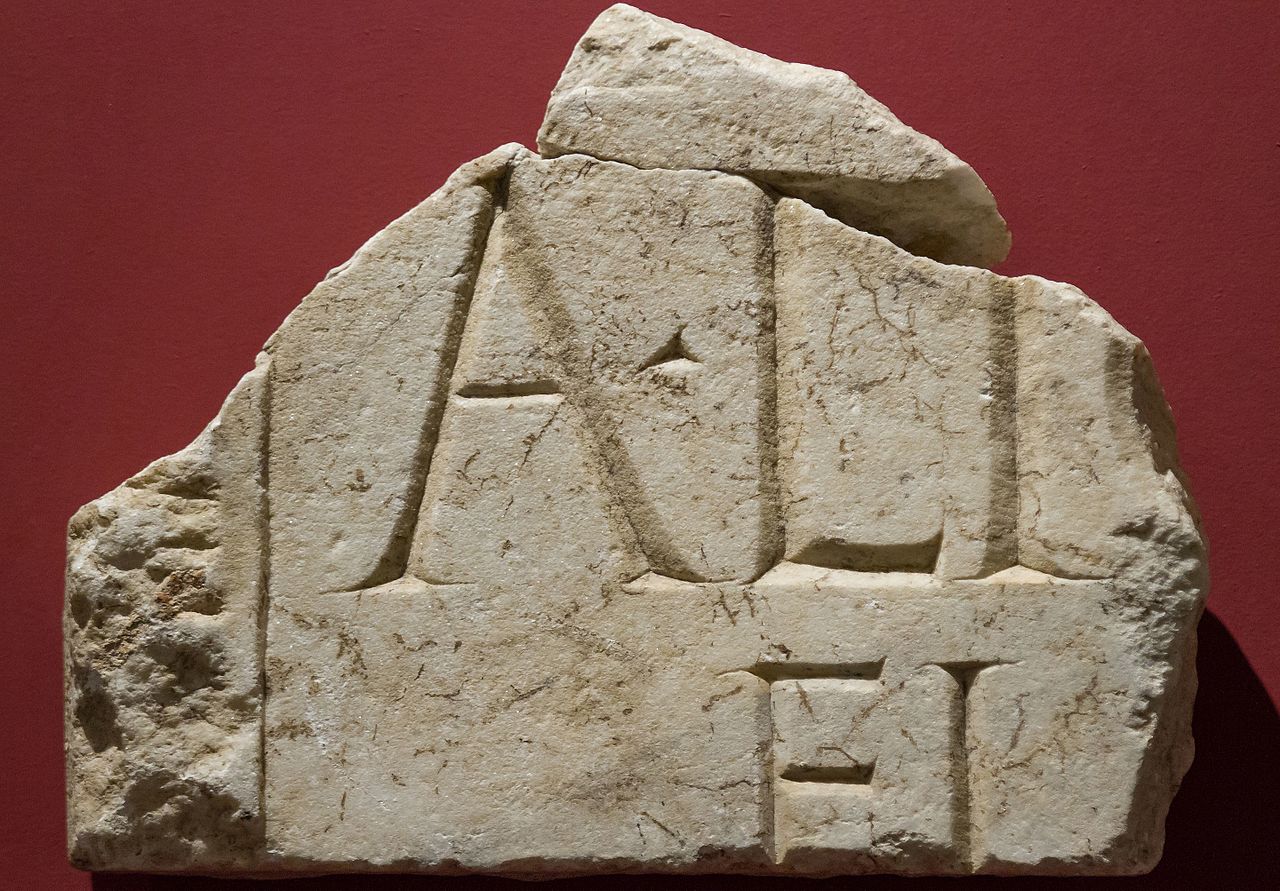

The ancient Romans had myths discussing the origins of various aspects of their culture. They talked about the origin of the city of Rome itself, their nation, and even their alphabet. According to Roman mythology, what exactly was the origin of the Latin alphabet? Furthermore, how well does this match the archaeological evidence?
An important figure in the story pertaining to the origin of the Latin alphabet is Evander of Pallantium. According to Greek and Roman mythology, one of the founding figures in Rome’s history was a king named Evander. He ruled over a city called Pallantium, which stood on the Palatine Hill, the site of ancient Rome.
Evander himself was a Greek king who had moved from Arcadia to Italy. He founded the city of Pallantium some sixty years before the Trojan War according to Dionysius of Halicarnassus, a Greek historian.
Some sources viewed this city not merely as the precursor to Rome but as early Rome itself. For example, the Greek geographer Strabo stated that Rome was originally a Greek colony, founded by Evander.
Whether Evander’s city should be considered a precursor to Rome or an early version of Rome itself, the main point remains the same. Evander supposedly had a profound influence on the early history of the Latin tribes in that area.
Ancient records from both the Greeks and the Romans make it clear that Evander, as a Greek king, brought numerous aspects of Greek culture with him to Italy. One of these was the alphabet.
According to Greek mythology, a prince of Tyre in Phoenicia named Cadmus traveled with many others to Greece centuries prior to the Trojan War. It was from this small migration that the Greeks learned the art of writing. Hence, by the time of Evander, the Greeks were already using an archaic form of their alphabet.
Several Roman writers of the second century BC mentioned that Evander brought with him the alphabet from Greece. Such writers included Lucius Cincius Alimentus and Fabius Pictor. They claimed that Evander brought sixteen letters across to Italy. Hence, this was the origin of the Latin alphabet according to Roman mythology.
Interestingly, at least one Roman writer preserved a somewhat peculiar version of this theory. Lucius Cincius Alimentus claimed that Evander did not bring the Greek alphabet itself to Italy. Rather, he claimed that the letters he brought over to Italy from Greece were the Phoenician characters that Cadmus had introduced to Greece.
In other words, rather than the Latin alphabet stemming from the Greek alphabet, Cincius’ claim is that both the Latin and the Greek were separate derivations of the Phoenician script, albeit after it had been presented in Greece.
It should be noted, however, that this does not appear to have been a very common belief.
The Romans believed this legend on the origin of the Latin alphabet. However, does it stand up to scrutiny when we examine the archaeological evidence? Fortunately, archaeology has revealed an extensive amount of information regarding the origin and development of the Latin alphabet, so the answer to this is very clear.
In the ninth century BC, the Greeks adopted the Phoenician script and adapted it into a true alphabet, with symbols for both consonants and vowels. In this regard, ancient records on the Greeks getting the art of writing from the Phoenicians is accurate.
Thereafter, around 700 BC, the Etruscans began using an alphabet derived from the Greek one. They may have acquired this directly from the Greeks or perhaps indirectly through the Phrygians (given the likely Anatolian origin of the Etruscans).
Shortly after this, in the seventh century BC, the Romans began writing with the Etruscan script. This then evolved into the Latin alphabet.

Based on these facts, how well does archaeology support the legend of the origin of the Latin alphabet?
The basic concept of the Latin alphabet as one that evolved from that of the Greeks after it was introduced to Italy (by Greeks) is clearly true. However, the manner in which this came to be is far more complex than claimed by Roman mythology.
One observation is that Cincius’ claim that the Latin alphabet was not directly derived from the Greek one is somewhat true. As we have seen, it actually came from the Etruscan alphabet. However, the specifics of Cincius’ claim—that both the Greek and Latin writing systems were independently taken from the Phoenician script—are clearly inaccurate.

As clarified, most sources do not rely on Cincius’ claim. Even following the common version of the legend in which Evander simply took the Greek alphabet with him to Italy, the archaeology contradicts this.
There is evidence of a Greek colony on the site of Rome early in its history. This likely led to the legend of Evander. However, this is dated to the eighth century BC. There is no evidence that the Latin tribes began writing that early.
The origin of the Latin alphabet cannot be traced back any further than the seventh century BC. At that time, it had been adopted from the Etruscan alphabet, which itself only dates back to c. 700 BC.
In summary, it is likely that the legend of the origin of the Latin alphabet in Roman mythology has conflated at least two distinct events in the early history of Rome. One was the establishment of a Greek colony. The other was the arrival of the Greek-based alphabet in Italy through the Etruscans several decades later.
